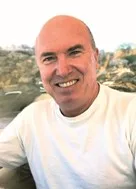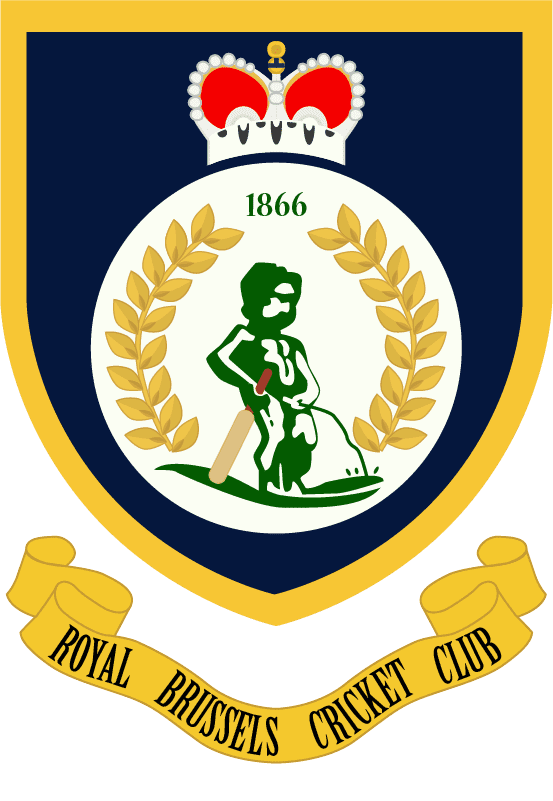
On 24th November 2023, Royal Brussels Cricket Club lost a great friend and stalwart club member in Chris Stone and we pay tribute to a life much lived.
Chris was born on 24th February 1959, in Hobart, the capital city of the southern Australian island state of Tasmania. He was weighing in at 4.5kg.
He went to Sandy Bay Infant School and then to Waimea Heights Secondary School. One of his early traits became evident here. At playtime, the girls would be separated from the boys and after school, the teachers would tell them that if Chris ever heard his sister cry, he would race over to care for her.
Life for Chris was, as the fullness of time would reveal, typically about limited sleep, a love of outdoor activities and getting up to mischief. As a child with his brother Jeremy, he often broke the rules irrespective of the consequences.
One time, while playing human hurdles inside the house, against their parent’s strict instructions, he tripped and crashed straight through a glass door, sustaining a significant arm gash and requiring his first trip to the hospital, followed quickly by another, when he pushed a handful of rice bubbles into his nose.
In 1969, his father was promoted and the family moved from Hobart to Melbourne. He attended secondary school at Caulfield Grammar, where he was a good student, but his focus was and he excelled in sports. He was Captain of Cricket & played First 18 Aussie Rules Football. Outside of school, he played Premier cricket for St Kilda, South Melbourne and Victoria Boys. He was a fast bowler and also a good batsman. His love of cricket was strengthened by the family’s close friendship with the great Sir Don Bradman’s family, a friendship that started when his mother found herself stuck in a hotel elevator in Melbourne with the great man, who was just 15 years old.
Faced with the choice of a chance at professional sport, he chose Australian Rules Football, believing he did not have the stature to be a top-flight fast bowler. At the junior level, he played for a local team called St Kilda City and then, at the age of 18, was selected to play in the premier competition for St Kilda – a team he had supported since moving to Melbourne. It was a dream come true. He was among the few to have kicked a goal with his first kick in the professional game against Collingwood. In a later game, he came off with a dislocated retina after being hit by a ball, an injury that kept him out for the next 9 months. Ironically, he did it again a few seasons later, this time fielding at point in a cricket match. Despite the initial hiccups, he was soon back in the side at St Kilda, now playing with squash goggles, and enjoyed a professional career for 7 years. His success was due to his skill, long hours of training, commitment and desire to succeed.
After secondary school (while continuing to play Aussie rules), he studied agricultural science at Latrobe University. This was also the disco period, and Chris, a part-time model, would hit the nightclubs with his mates dressed in white pants and matching white jackets, looking like John Travolta (Saturday Night Fever, not Pulp Fiction).

After graduation, he secured a job in sales at Pearl & Dean – a cinema advertising company. He had found his calling and was promoted with a move to Sydney in 1986, at the age of 27. He quickly integrated into local life, sport, work and entertainment. His circle of business interests and friends widened and when the opportunity of an assignment in London arose, he jumped. There, he made some lasting friendships playing premier league cricket for Esher Cricket Club. He also played a couple of matches for the MCC but, not planning to stay in London, did not complete the prerequisite for playing membership – a decision he later regretted. However, by now, his sights were set on Belgium, which would become his home for the rest of his life.
In 1994, he arrived at the Royal Brussels Cricket Club and was invited to play under the then 1st team captain & wicketkeeper, Colin Wolfe. Colin later recalled asking him if he had played much cricket. He said he’d played a bit. When he came on to bowl his first over, Colin asked whether he should stand up or back – “Maybe stand back for the first couple and see how it goes,” came the reply – he soon gained fame as one of the fastest bowlers in Belgium.
Chris brought all his great talent and colour to his cricket here in Belgium. He was competitive, but he could laugh at himself, as well as at his teammates. Bedecked in his wide-rim hat, full of Aussie wit and banter, he soon made deep friendships and became a big figure in the club and the last to leave the bar after a game. He reserved most of his sledging for his teammates but could be combative on the field. Once, when denied a clear LBW decision in a game against Antwerp Indians, he confronted the batsman, “Why don’t you walk?” and narrowly avoided sanction from the umpire. Later, he conceded that he would never walk since you get enough good decisions in life to offset the bad ones. On another occasion he was fed up in a match at Luxembourg having not bowled and not called on to bat until only 6 runs were required, he announced he would do it in one ball and duly dispatched it for six.
Always the showman, his speeches at club dinners were legendary, bringing both rib-cracking laughter and sometimes censure from the victim’s spouse. When asked to present the prize for the best batsman, he opened with the unforgettable line “I have been instructed that tonight I must on no account take the piss out of this fine gentleman, well ladies and gentlemen I beseech you, how could I possibly take the piss when nature has done such a magnificent job”.
He was not only a fine player, but he made the rest of the team feel good about themselves and play better. He was part of the dream team that won several Belgian national league titles in the late 90s – early noughties – and he became a hugely popular and respected figure in Belgian cricket, even if from time to time, he liked to discuss matters with the umpires.
It was during this time that he met Sophie Wilmes, who would become the love of his life. Whilst some were initially surprised by the match, she was from a great Belgian family and he (in his own words) “a bit of rough from down under”, it was love at first sight and his life was changed forever. They were married in 2002 and made a home together with his son Jonathan and soon after their 3 daughters –Victoria, Charlotte, and Elizabeth. He was deeply attached to his family and inseparable from Sophie, who later became the first female prime minister of Belgium in 2019. Despite his busy life as CEO and husband of a premier politician, he was a devoted father who prioritised his family, never missed any of their hockey games and always encouraged them with their music.

By 2007, he had reached the end of his cricket-playing days. He devoted his life to his family while growing a successful business after acquiring an Advertising company, Dewez, in 2001. Instead, he took up hockey, as a goalkeeper and captain at Wellington Hockey Club. He loved mountain biking and joined a motorbike club of close mates who toured Europe and the deserts of North Africa. He was also a fair-weather golfer at Sept Fontaines and once hooked his drive into a swimming pool and then explained to the irate Englishman that it was, in fact, his fault for placing the pool there. Of all the adventures, he would recall his white-water rafting down the Zambezi River as the most extraordinary moment of his life.
Throughout his life, he remained passionate about his Australian heritage. He was President of ABIE (Australian Business in Europe) for several years which he used to strengthen cultural links between Belgium and his homeland. He was also passionate about art and held a substantial collection of fine Aboriginal Art.
Although Chris stopped playing cricket, he continued to give much to the club and the sport. He and Sophie would travel the world to attend former clubmates’ weddings. He provided ideas for the 200-year anniversary (of the battle of Waterloo, 150th of the club) celebrations in 2015, which included a tri-lateral tournament with the club, the Guards, and the MCC. He put on a tour to Belgium with 2 distinguished MCC members explaining the “history of The Ashes” in schools. He also helped bring more young people into the game, many from disadvantaged backgrounds and supported the club’s initiatives with young migrants, recognising the importance that sport can play in integrating into Belgian communities. His support was instrumental in cricket becoming recognised as an official sport in the French-speaking regions of Belgium in July 2023.
In the Summer of 2022, he was suddenly diagnosed with an aggressive brain cancer. Always a fighter, he fought it bravely and embarked on a bucket list of life wishes with Sophie, who stepped down as Foreign Minister to be with him, and their 4 children. He died peacefully on the evening of 24th November 2023. Our thoughts all lie with his family.
RBCC pays tribute to a great Australian sportsman, a distinguished businessman and a loyal and loving father and husband. Christopher, the world is a poorer place without you, but we are richer for having known you. May you rest in peace.
